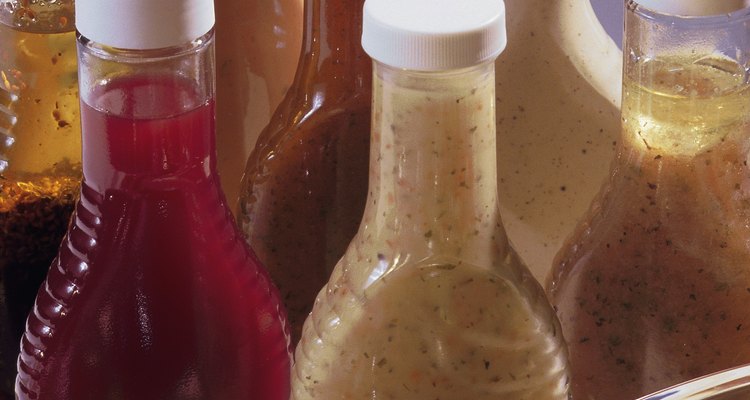
Comstock/Stockbyte/Getty Images
Vinegar by itself can be opened and stored in the pantry for more than a year before anything noticeable happens. White vinegar will last indefinitely. When vinegar is mixed with other ingredients, however, this protection is diminished or may disappear completely. This applies to vinegar-based salad dressings, even if they're stored in the refrigerator.
Vinegar as a Preservative
Vinegar is often used as a food preservative because of its low pH. Low pH equals high acidity, and harmful bacteria typically cannot grow in an acid environment. Citric acid or ascorbic acid can also be used in place of or in addition to vinegar as a food preservative. Though most vinegar can last for five to 10 years, the flavor and consistency of vinegars other than distilled white vinegar will become less appealing after about a year.
The Role of Other Ingredients
The reality is that vinegar-based salad dressings are not just vinegar. And, while vinegar can extend the shelf life of other foods, they still won't last nearly as long as the vinegar on its own. Even with vinegar as an ingredient, the addition of dairy in ranch dressing or eggs in mayonnaise will cause the dressing or condiment to spoil more quickly. Another consideration is the addition of fresh herbs such as dill or garlic because these ingredients also start breaking down once they're exposed to air. Without these extras, Italian dressing and other vinaigrettes will last somewhat longer.
Commercial Salad Dressing
Most commercially made salad dressings use the same types of preservative ingredients that homemade ones do. Vinegar, sugar, citric acid (usually lemon juice), ascorbic acid and salt are common to both kinds of salad dressing. The difference is that commercial salad dressings are usually pasteurized to comply with safety regulations and then stamped with a "best by" date, which varies from one to four months. If the smell of the dressing is questionable, that date comes in pretty handy.
Homemade Salad Dressing
Of course, there is no such "best by" date stamped on homemade vinegar-based salad dressings. They're typically not pasteurized either. If kept in the refrigerator, a good guideline for homemade salad dressing is two weeks for a simple vinaigrette and about one week for dressings that contain dairy or fresh herbs. Dressings containing raw garlic should be eaten within a few days because of the risk of botulism.
Related Articles

Do You Have to Refrigerate Mayonnaise ...

Storage Time for Homemade Olive Oil ...
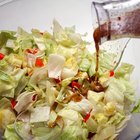
How to Store Homemade Salad Dressing
How Long Will Uncooked Pasta Keep in ...

Can You Eat Expired Mayonnaise?
How Long do Leftovers Last?
How Long After the Expiration Date Can ...

How Long Is Hand Lotion Good For?
What Happens if You Eat Expired Beets ...

Shelf Life of Frozen Foods

How Long Does Whipping Cream Stay Fresh ...

Does Dry Chili Ever Expire?
Can Vegetable Oil Go Bad After the ...
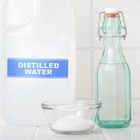
Homemade Contact Lens Solution
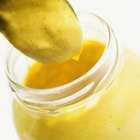
Is Mustard Dangerous to Eat When It Is ...
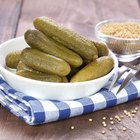
The Advantages of Pickling Foods
How Long Can Leftovers Be Refrigerated?
How Long Can You Keep an Open Bottle of ...

Dented Cans and Botulism
Can You Freeze Capers?
References
Writer Bio
Mary Potts has been a writer since 2008. She writes food reviews, chef profiles and feature articles ranging from green living to arts and culture for "North Bank," an urban lifestyles magazine based in Vancouver, Wash. Potts earned a Bachelor's degree in photography from Northern Arizona University in 1997.
Photo Credits
Comstock/Stockbyte/Getty Images